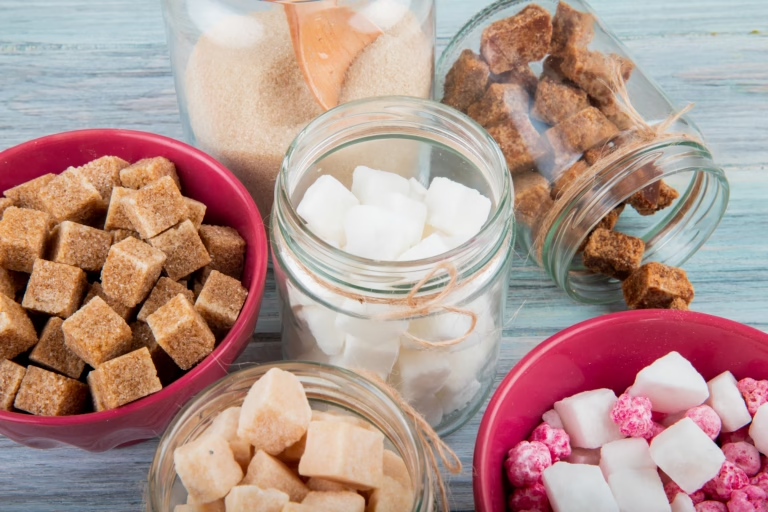Low Magnesium Symptoms: Why Your Muscles Still Feel Weak
Low magnesium symptoms might be the hidden reason your muscles feel weak—even though you’re doing everything right. You’re watching your macros, hitting your protein goals, maybe even blending up multiple shakes a day. You work out regularly, lift heavy, and genuinely put in the effort. But there’s one frustrating problem: your muscles still feel weak. Your strength isn’t improving. You’re not recovering like you should. And maybe, just maybe, you’re starting to wonder if something deeper is going on.
That nagging fatigue, those cramps that won’t quit, the soreness that lingers for days—those might not just be signs of overtraining or aging. They could be symptoms of something surprisingly simple and fixable: low magnesium.
When Protein Isn’t Enough
Let’s clear one thing up: protein is still important. It’s the raw material your body needs to build and repair muscle. But protein isn’t the whole picture—it’s just one piece of the puzzle.
Think of protein like the bricks in a wall. Essential, yes, but useless without mortar to hold them together. That “mortar” comes in the form of micronutrients—specifically minerals that help build muscle. And out of all of them, magnesium is one of the most crucial, and yet most overlooked.
You can be hitting your protein target daily, but if you’re not getting enough magnesium, your body might struggle to use that protein effectively. That means less energy, slower recovery, and weaker results.
What Low Magnesium Symptoms Really Feel Like
You don’t have to be dangerously deficient to feel the effects. Even mild magnesium deficiency can create ripple effects throughout your body.
You might feel unusually tired, even when you’ve slept well. Muscles could feel heavy or crampy. That post-workout soreness might stick around longer than it should. Maybe you’re a bit jittery, or your eyelid twitches for no reason. These are all classic low magnesium symptoms, but most of us shrug them off.
And here’s the twist: standard blood tests can miss magnesium deficiency. That’s because only about 1% of magnesium is found in the blood. Most of it is stored in bones and muscles. So even if your labs say you’re within the “normal magnesium range”, you could still be low where it actually matters.
Why Are So Many of Us Lacking Magnesium?
It’s not just you. Magnesium deficiency is surprisingly widespread, even among people with “healthy” diets. In fact, studies show that about 48% of Americans fall short on magnesium intake according to the USDA.
Modern farming is one big reason. Our soil has been depleted of minerals over time, meaning crops contain less magnesium than they once did. Processed food is another culprit. When grains are refined into white flour or white rice, most of the magnesium is stripped away. Add in caffeine, alcohol, stress, and common medications—all of which increase magnesium excretion—and it’s easy to see why deficiency is so common.
Exercise adds to the mix. Athletes and active people actually lose magnesium through sweat and use more during muscle recovery. One study published in Magnesium Research found that magnesium requirements can increase by 10–20% in athletes.
Why Magnesium Is a Game-Changer for Muscle Growth
Magnesium is far more than a “nice to have” nutrient. It’s involved in over 600 enzymatic reactions, including many related to energy metabolism and muscle repair. A major review in Nutrients highlighted how magnesium plays a crucial role in activating ATP—the molecule your body uses for energy.
Here’s the deal: your body can’t make or use ATP without magnesium. Most ATP in the body is bound to magnesium (called Mg-ATP). No magnesium, no usable energy. And without energy, your body can’t synthesize protein effectively, repair muscle tissue, or fuel your workouts.
Magnesium also keeps your muscles and nervous system working together in harmony. It allows muscles to contract and relax properly—something many people don’t realize until cramps, stiffness, or spasms start showing up.
The Nutrient Team Behind Muscle Performance
Magnesium works best when it’s supported by its nutritional teammates.
Potassium is one such partner. It helps regulate nerve signals and muscle contractions and works synergistically with magnesium to prevent cramps and promote hydration.
Then there’s calcium—a double-edged sword. While it triggers muscle contraction, magnesium is what helps muscles relax afterward. Too much calcium and not enough magnesium can cause your muscles to stay tense, which may explain lingering soreness or tightness.
Vitamin D is also connected. Magnesium is required for your body to properly metabolize and activate vitamin D. A deficiency in one can affect the other. According to research from the American Osteopathic Association, people with low magnesium levels often show poor vitamin D status—even if they supplement.
Lastly, zinc helps support testosterone levels and immune function—both crucial during muscle repair phases.
Adding Magnesium to Your Diet
The best place to start is always food. Some of the most effective and tasty foods high in magnesium include:
- Leafy greens like spinach and Swiss chard
- Pumpkin seeds, almonds, and cashews
- Avocados and bananas
- Black beans and lentils
- Quinoa, oats, and brown rice
- Dark chocolate (70%+ cocoa)
- Milk, especially raw milk. Normal milk is also completely fine.
If you’re not sure where to begin, here’s a handy magnesium-rich food chart from the NIH.
Aim to get magnesium through meals daily—ideally paired with whole, unprocessed ingredients.
Supplement To Remove Low Magnesium Symptoms
Even with a solid diet, you might still fall short—especially if you’re training hard, under stress, or dealing with digestion issues. That’s when magnesium supplements can really help.
If you’re looking for a high-quality option, I personally recommend trying the different forms of natural magnesium supplements listed below. Each one is made with food-based, bioavailable ingredients that are easy for your body to absorb. They’re gentle on the stomach, free from synthetic additives, and ideal for supporting an active, health-conscious lifestyle.
Some of the most effective forms include:
- Magnesium glycinate – A gentle, well-absorbed form known for promoting relaxation and muscle recovery. Great if you’re looking to support sleep and reduce tension after workouts.
- Magnesium citrate – Highly absorbable and excellent for digestion and energy. Just a heads-up—it can have a mild laxative effect. (Curious how long for magnesium citrate to work? It usually kicks in within 30 minutes to 6 hours, depending on your dosage and digestive system.)
- Magnesium chloride – Often used in topical sprays for targeted muscle relief. Ideal for sore or tight areas after intense training.
- Magnesium complex – If you’re not sure which form is best for your body, a broad-spectrum magnesium complex combines several types (like glycinate, malate, and taurate) to support energy, relaxation, recovery, and more—all in one capsule. It’s an easy, all-in-one solution for daily use.
The Cleveland Clinic offers more insights here.
As always, it’s smart to check with a healthcare provider before adding a new supplement—especially if you take medication or have a chronic condition.
Don’t Let Low Magnesium Hold You Back
You’ve got the dedication. The nutrition. The drive. So if you’re doing everything “right” but still feeling stuck, sore, or zapped of energy, it may be time to stop looking at your macros—and start looking at your minerals.
Low magnesium symptoms can creep in silently and make it feel like you’re spinning your wheels. But once you bring magnesium into balance, things start clicking: your recovery improves, your energy returns, and your strength finally shows up the way it should.
Start with smart food choices, be mindful of your lifestyle habits, and if needed, bring in a quality supplement. Your body—and your muscles—will thank you. Want to learn more about how to make the right food choices? I’ve got the right blog for you! Click here to read all about the most nutrient dense foods you can eat.
✉️ Stay Inspired, Stay Healthy
Love tips like this?
📬 Join our free newsletter and get science-backed health wisdom delivered straight to your inbox!
What you’ll get:
- Wellness tips and health “hacks”
- Simple strategies to boost your health and energy
- Exclusive content, recipes, and challenges
Subscribe below to take the next step toward a healthier, more energized life.
No spam. Just real value. Unsubscribe anytime.
This article contains affiliate links. That means I may earn a small commission if you make a purchase through one of these links – at no extra cost to you.








